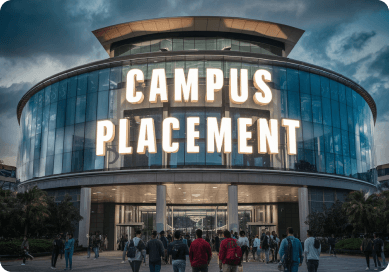Enter OTP



Oberlin, United States of America

Oberlin, United States of America

Cost Of Living

Undergraduate Fees International Students

Post Graduate Fees International Students

Oberlin College's unique selling proposition (USP) lies in its combination of academic rigor, progressive values, and artistic excellence. As a leader in liberal arts education, Oberlin offers a diverse range of programs, including the renowned Oberlin Conservatory of Music, known for producing world-class musicians. The college’s commitment to innovation is reflected in its interdisciplinary approach to education, such as the pioneering undergraduate Neuroscience program. Oberlin is also distinguished by its inclusive, socially conscious campus, fostering a student body that is highly motivated, tolerant of diverse viewpoints, and dedicated to activism. Its legacy of progressive student movements further strengthens its reputation as a hub for change-makers.
Thornton Wilder was an acclaimed playwright and novelist best known for works like Our Town and The Bridge of San Luis R... View More
Thornton Wilder was an acclaimed playwright and novelist best known for works like Our Town and The Bridge of San Luis Rey, both of which won Pulitzer Prizes. His exploration of universal themes in simple, yet profound narratives, has made him one of the most respected writers in American theater. View Less
A neuropsychologist and Nobel Laureate, Sperry won the Nobel Prize in Physiology or Medicine in 1981 for his pioneering ... View More
A neuropsychologist and Nobel Laureate, Sperry won the Nobel Prize in Physiology or Medicine in 1981 for his pioneering research on the split-brain and lateralization of brain function. His work helped reshape the understanding of how the brain processes information. View Less
An economist and Nobel Laureate, Angrist was awarded the Nobel Prize in Economic Sciences in 2021 for his contributions ... View More
An economist and Nobel Laureate, Angrist was awarded the Nobel Prize in Economic Sciences in 2021 for his contributions to causal relationships in economic research. He is known for his work on natural experiments and how they help assess causal effects in economics. View Less
Stanley Cohen was an American biochemist who received the Nobel Prize in Physiology or Medicine in 1986 for his discover... View More
Stanley Cohen was an American biochemist who received the Nobel Prize in Physiology or Medicine in 1986 for his discoveries in the field of cell signaling and growth factors, which had significant implications in cancer research and drug development. View Less
A Pulitzer Prize-winning poet, Carl Dennis received the award in 2001 for his collection Practical Gods. His work explor... View More
A Pulitzer Prize-winning poet, Carl Dennis received the award in 2001 for his collection Practical Gods. His work explores themes of spirituality, daily life, and personal reflection, earning him recognition as one of America's leading poets. View Less
Michael Dirda is an acclaimed American essayist and literary critic, known for his book reviews in The Washington Post. ... View More
Michael Dirda is an acclaimed American essayist and literary critic, known for his book reviews in The Washington Post. He won the Pulitzer Prize for Criticism in 1993 for his insightful and engaging writing on literature. View Less
Emily Nussbaum is a television critic for The New Yorker and won a Pulitzer Prize for Criticism in 2016. She is widely p... View More
Emily Nussbaum is a television critic for The New Yorker and won a Pulitzer Prize for Criticism in 2016. She is widely praised for her thought-provoking analysis of television and its cultural impact. View Less
Christopher Rouse was a prominent American composer, particularly known for his orchestral works. He won a Pulitzer Priz... View More
Christopher Rouse was a prominent American composer, particularly known for his orchestral works. He won a Pulitzer Prize for Music in 1993 for his composition Karolju, and his music is widely performed by leading orchestras worldwide. View Less
Vijay Seshadri is a poet and essayist who won the Pulitzer Prize for Poetry in 2014 for his collection 3 Sections. His w... View More
Vijay Seshadri is a poet and essayist who won the Pulitzer Prize for Poetry in 2014 for his collection 3 Sections. His works explore themes of identity, life, and the human experience, with a distinctive voice that has earned widespread recognition. View Less
George Walker was an influential composer and the first African American composer to win the Pulitzer Prize for Music, a... View More
George Walker was an influential composer and the first African American composer to win the Pulitzer Prize for Music, awarded in 1996 for his Lilacs, a work for voice and orchestra. His compositions contributed greatly to the richness of American classical music. View Less
Oberlin College boasts a dynamic and environmentally sustainable campus infrastructure, reflecting its commitment to academic excellence and sustainability. The campus features several notable buildings that integrate cutting-edge green technology and sustainable designs.
Adam Joseph Lewis Center for Environmental Studies: This building was one of the first to achieve LEED Gold certification and serves as a model for sustainable design. It incorporates a Living Machine wastewater treatment system and a solar parking pavilion that generates electricity for the building
Sustainable Energy Systems: Oberlin's energy initiatives include a district-wide geothermal heating and cooling system, transitioning the campus to renewable energy sources. This initiative contributes to the college’s goal of achieving carbon neutrality by 2025
Robert L. Kahn Hall: A first-year residence hall designed with sustainability in mind, Kahn Hall received LEED Silver certification for its efficient use of resources and energy. It includes detailed energy metering, encouraging students to monitor their environmental impact
Bertram and Judith Kohl Building: This modern facility houses the jazz studies program and was awarded LEED Gold for its sustainable design. It includes versatile performance spaces, practice rooms, and a superior recording studio
Green Policies and Practices: Oberlin has integrated eco-friendly cleaning chemicals, carpet recycling, and a comprehensive waste reduction program across the campus. These practices are part of its broader sustainability efforts
Student life at Oberlin College is rich with opportunities for engagement both academically and socially. Here are some key highlights:
Residential Life: All students at Oberlin are required to live on campus for all four years, fostering a close-knit community. Oberlin's residential system is designed to enhance the learning experience, with programs that promote leadership, sustainability, and personal growth
Diverse Extracurriculars: The campus offers a variety of clubs, organizations, and events that cater to different interests, including social activism, performing arts, and academic exploration. Students are encouraged to get involved and find their passions
Creative Campus: As a hub for the arts, Oberlin supports students in music, theater, and visual arts, with numerous performances, exhibitions, and collaborative projects. The college hosts various music ensembles, theater productions, and art exhibits year-round
Active Social Scene: Students enjoy a vibrant social life, with opportunities ranging from weekly social events to informal meetups at the Rathskeller (a campus pub) or community dinners
Civic Engagement and Activism: Oberlin has a long history of student activism, and current students continue to push for social change. The campus culture encourages participation in movements addressing issues like environmental sustainability and social justice


Oberlin College offers comprehensive career support through its Career Development Center (CDC), providing students with resources and guidance to help them navigate their professional journeys. The CDC assists with job searches, internship placements, resume writing, interview preparation, and career counseling. It also organizes career fairs, networking events, and alumni panels to connect students with potential employers and professionals in various fields.
The Handshake platform is used by Oberlin College to manage on-campus recruitment, allowing students to upload resumes, apply for job opportunities, and schedule interviews. This platform connects students with numerous employers, both on and off-campus, offering a wide range of internship, part-time, and full-time job opportunities.
Additionally, the Alumni Relations Office supports students by fostering connections with Oberlin alumni, who often serve as mentors, advisors, and even employers. The college encourages students to tap into its strong alumni network for career insights and opportunities.
The below information is required while
completing the university application :
a) Common Application/Online Application
b) $100 application fee
c) Official high school transcript
d) Letters of recommendation
e) Statement of purpose
f) Official SAT/ACT scores
g) Typical SAT scores: Math-720, Critical reading-620, Writing-660, ACT Composite: 30
h) Average GPA 3.54
i) TOEFL/IELTS scores if the applicant’s native language is not English.
j) TOEFL: IBT-106
k) Acceptance rate: 34%
Requirements may vary for each program. Please visit program page for specific requirements.
Know moreOberlin College's campus recruitment program connects students with top employers through job fairs, information sessions, and networking events. The college’s Handshake system allows students to upload resumes, apply for job opportunities, and schedule interviews with companies that visit the campus. Employers from various industries, including education, finance, and the arts, actively recruit Oberlin graduates, valuing their critical thinking, creativity, and activism. The college also offers career services and guidance to help students navigate the job market and secure positions after graduation. Oberlin's strong alumni network further supports students in their career development.



Oberlin College has a rich history of academic excellence, progressive values, and student activism. Over the years, it has achieved numerous milestones that highlight its commitment to education, social justice, and innovation. Here are some of its key achievements:
Innovative Education: Oberlin College is ranked among the top liberal arts colleges in the U.S., known for its innovative programs and high-quality undergraduate teaching.
Historic Firsts: It was the first college to admit African Americans and women, setting a precedent for inclusion and equality in higher education.
World-Class Conservatory: The Oberlin Conservatory of Music, the oldest continuously operating conservatory in the U.S., has produced renowned musicians and composers.
Environmental Leadership: Oberlin has been recognized for its commitment to environmental sustainability, offering one of the first undergraduate Neuroscience programs in the world.
Prestigious Alumni: The college boasts a network of accomplished alumni, including Nobel Prize winners, Pulitzer Prize recipients, and prominent figures in science, arts, and politics.


Oberlin College has made significant contributions to the arts, including hosting renowned musicians, artists, and cultural leaders. The Allen Memorial Art Museum, located on campus, is a notable example, housing an impressive collection of European and American art and providing cultural enrichment to the college community.
Oberlin College consistently ranks as one of the top liberal arts colleges in the United States. In 2020, it was ranked by U.S. News & World Report as the 33rd best national liberal arts college, recognized for its academic excellence, innovative programs, and commitment to undergraduate teaching.
Oberlin College was one of the competitors in the U.S. Department of Energy’s Solar Decathlon in 2002, where the college built a solar-powered house. This project highlighted Oberlin's commitment to sustainable architecture and renewable energy, earning recognition for its innovative approach to green building.
Oberlin College has long been a leader in sustainability efforts. Its “Oberlin Project,” launched in 2010, has aimed to transform the campus into a model of environmental sustainability, achieving numerous milestones in energy efficiency, carbon reduction, and sustainable food systems.
Oberlin College was recognized as one of the “Most Innovative” liberal arts colleges by U.S. News & World Report in 2020. This achievement reflects the college’s focus on pioneering academic programs, including its interdisciplinary approaches to science, music, and environmental studies.
Oberlin College has increasingly expanded its global engagement through research collaborations, study-abroad programs, and international partnerships. Its faculty and students contribute to global research, particularly in fields like environmental science, political science, and global health, positioning Oberlin as a leader in international education and research.
In 1983, Oberlin College launched the first undergraduate neuroscience program in the world. This pioneering initiative combined biology, psychology, and chemistry to provide students with an interdisciplinary education, and it has since inspired similar programs at other academic institutions worldwide.
Oberlin College students have been at the forefront of various significant protest movements, from the Civil Rights Movement in the 1960s to the anti-Vietnam War demonstrations. In the 2000s, students also protested for labor rights, showing the college's ongoing tradition of activism and social justice advocacy.
The Oberlin Conservatory, founded in 1865, is the oldest continuously operating conservatory of music in the United States. Its commitment to excellence in music education has produced numerous accomplished musicians, composers, and educators, contributing significantly to the world of classical and contemporary music.
Oberlin College made history in 1835 by becoming one of the first colleges in the United States to admit African American students. In 1837, it became the first college in the country to admit women on equal terms with men, marking a significant step toward racial and gender equality in higher education.
Oberlin College is committed to fostering innovation and research across disciplines, encouraging students and faculty to explore new ideas, solve complex problems, and contribute to societal progress. The college offers a dynamic environment where cutting-edge research in fields like environmental science, neuroscience, and biology is actively pursued.
Research Opportunities: Oberlin supports undergraduate research through grants, fellowships, and collaborations with faculty, providing students with hands-on experience in their chosen fields.
Environmental Sustainability: Oberlin is known for its environmental leadership, with research initiatives focused on sustainability, renewable energy, and climate change solutions.
Interdisciplinary Programs: The college promotes cross-disciplinary research, such as its groundbreaking Neuroscience program, one of the first of its kind at the undergraduate level.
Innovative Courses and Technologies: Oberlin integrates innovation into its curriculum by incorporating new technologies and offering programs in areas like data science, economics, and creative writing.
Conservatory of Music: The Oberlin Conservatory pushes boundaries in music research, offering opportunities for students to explore music theory, composition, and performance technology.
In 2015, Oberlin College engineers developed an innovative bioreactor that converts organic waste into clean water and renewable energy. The device was designed as a solution for waste management and sustainability, with the potential to revolutionize environmental technologies.
Launched in 2010, the Oberlin Project is an ambitious sustainability initiative that aims to transform the campus into a model of energy efficiency and environmental responsibility. It includes efforts to reduce carbon emissions, promote renewable energy, and support sustainable local food systems.
Oberlin College pioneered sustainable dining practices in the 2010s by focusing on locally sourced, organic, and fair-trade food. The initiative significantly reduced food waste and carbon emissions, while promoting a model of sustainable eating for academic institutions across the country
Oberlin College students launched a biofuel project in 2007, producing biodiesel fuel from used cooking oil collected from local restaurants. This project not only provided an alternative energy source for the campus but also raised awareness about sustainable energy practices.
The Green Roof, installed in 2005, is a sustainable building feature that helps reduce energy costs, absorb stormwater, and improve air quality. The roof serves as a research and educational site for students studying environmental science and urban sustainability.
In 2003, Oberlin College became one of the first colleges in the U.S. to install a wind turbine as part of its commitment to renewable energy. The turbine generates electricity for the campus, serving as both an energy source and a living laboratory for students studying renewable energy.
Oberlin College participated in the U.S. Department of Energy’s Solar Decathlon in 2002, where they built a solar-powered house that blended energy efficiency with sustainable design. This innovative project earned the college national recognition for its contributions to green building and environmental sustainability.
In the early 2000s, Oberlin College developed a digital archive to preserve and provide access to rare documents, images, and records. This project was one of the first of its kind, enabling academic institutions worldwide to better share and preserve cultural heritage.
The Oberlin Conservatory of Music has developed numerous innovations in music technology since the 1990s, including software for digital sound production, music notation, and performance analysis. These advancements have allowed musicians and composers to push the boundaries of sound and performance in the digital age.
Oberlin College introduced the world’s first undergraduate neuroscience program in 1983. This groundbreaking initiative provided students with a comprehensive education in neuroscience, combining biology, psychology, and chemistry, laying the foundation for many similar programs in academic institutions worldwide.

Embark on your educational journey with confidence! Our team of admission experts is here to guide you through the process. Book a free session now to receive personalized advice, assistance with applications, and insights into your dream school. Whether you're applying to college, graduate school, or specialized programs, we're here to help you succeed.
